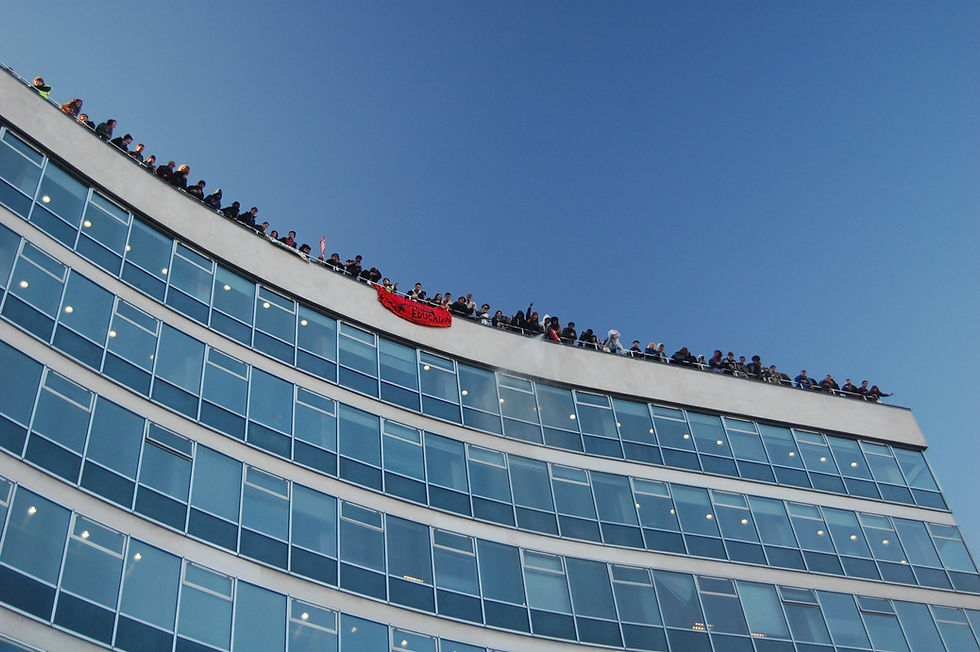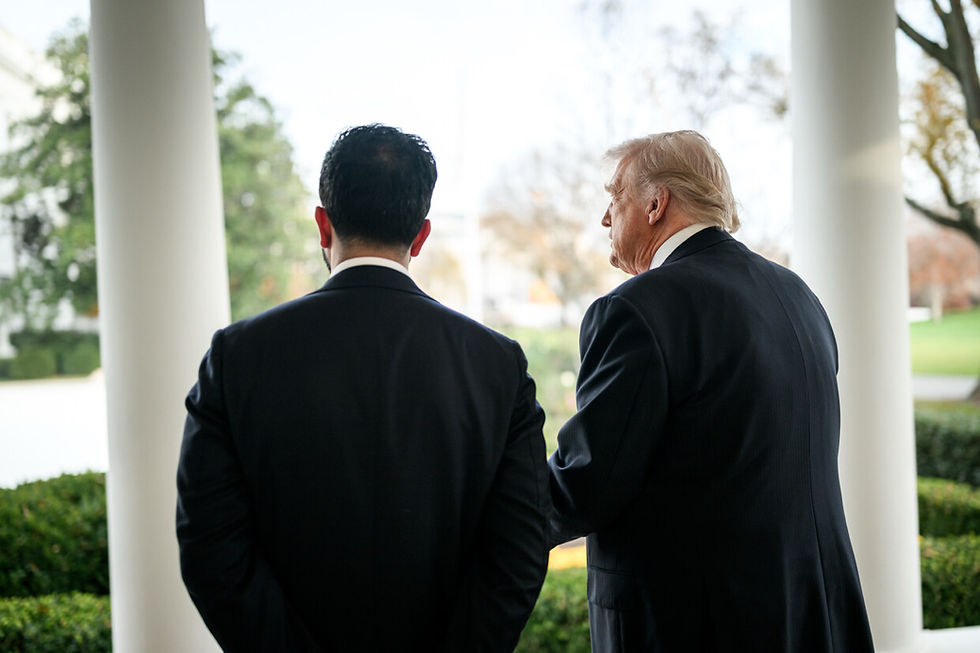How Personalism Corrupts Latin American Politics
- Victor Elizondo

- May 14, 2025
- 3 min read

Politics in Latin America has its own particular elements that make it one of the most politicised regions in the world. The national political systems and the historical evolutions of their political psyches are so geared. However, Latin America has faced a major challenge for years that it has been unable to overcome: political personalism. The rise of ideological idols and doctrinaire leaders has led to a loss of civility and rationality in politics in this region over the years. This political malaise has manifested itself in almost every country that comprises Latin America, to name a few: Mexico, Colombia, Venezuela, Ecuador, Bolivia, and Argentina. Until the political consciousness of those who live in this region abandons viewing their leaders as saviours and prophets, they will not be able to escape Latin American populism’s prison.
Latin American political systems have institutional gems that can be considered benchmarks for the protection and progress of democracies in their countries. Such is the case with the implementation of presidential runoff elections in various countries in the region. This mechanism allows whoever is elected president of their nation to obtain a mandate with a majority exceeding 50%, having eliminated the least viable options in the first round. This type of action forces politicians to forge pacts and negotiate to gain the support of their electoral adversaries and, in an ideal political scenario, be able to work together in the next government. Other noteworthy actions include the creation of national primaries, as in Argentina; ensuring that the second-place finisher in the presidential election automatically receives a seat in the Senate, as in Colombia; and promoting voluntary voting for those who are 16 and 17 and mandatory voting for citizens who are 18 and older as in Brazil. These are just some of the most impressive institutional characteristics that make Latin America a truly democratic region. However, the emergence of populist leaders over the years has poisoned the well, causing these distinctive features of Latin American democracies to go unnoticed.
The big problem with these false idols is that they generate such a profound impact on Latin American society that the traditional political spectrum is lost in the idolatry of their movements. Conventional terms like conservative, liberal, or socialist blur and turn into personalisms to characterise political actions that, so to speak, already existed in the universal political dictionary. Politicians in this region take fragments of actions identified within the traditional political landscape and transform them into a new formula related to their identity. Examples include Peronism and Kirchnerism in Argentina, Correism in Ecuador, Obradorism in Mexico, Uribism in Colombia, and Chavismo in Venezuela, to name a few. Latin American political personalisms also consequently provoke the emergence of multiple parasitic political parties. These parties are generated when the traditional political forces to which these leaders belonged decline after their time in the political sunlight.
Their personal marks on the politics of their respective countries are difficult to erase, whether due to the popular practices they carried out during their administrations or the excessive exposure to their citizens through their demagogic and polarising speeches. It is paradoxical that these political actors remain highly relevant even after leaving power, given that their presence in their countries' political scene, in some cases, had a very negative impact on political institutions and democracy. Hugo Chávez and his successor, Nicolás Maduro, destroyed the Venezuelan economy while consolidating a dictatorial regime. Cristina Fernández de Kirchner in Argentina left a legacy of crisis and countless accusations of corruption. Rafael Correa in Ecuador and Evo Morales in Bolivia undermined their democracies by attempting to perpetuate themselves in power. Andrés Manuel López Obrador in Mexico tried to dismantle the National Electoral Institute (INE), the independent body that monitored and organised elections in that country. Unfortunately, these attacks on democracies have been backed by the public, as these leaders have moved beyond political reason and become idols of populist movements that have effectively spread their message.
It's always sad to see how the old practice of panem et circenses takes its toll on society and democracy. These leaders undermined, in the worst cases destroyed, democratic institutions. The vulnerability of Latin American democracy arises from the momentum and strength of the demagogic and populist movements we have been witnessing in these countries since the beginning of the 21st century.
The political behaviour of these societies, whether through action or inaction, is responsible for the rise and downfall of these leaders. Unfortunately, Latin America is not a political region, but a politicised one. As long as there is room for demagoguery, polarisation, and populism, democracy will suffer, and democracy in Latin America has been suffering for a long time.
Image: Wikimedia Commons/Cacen Gymraeg (Unknown Photographer)
Licence: public domain in Argentina see Law 11.723, Article 34 see also Wikimedia Commons précis
No image changes made.
.png)



Comments